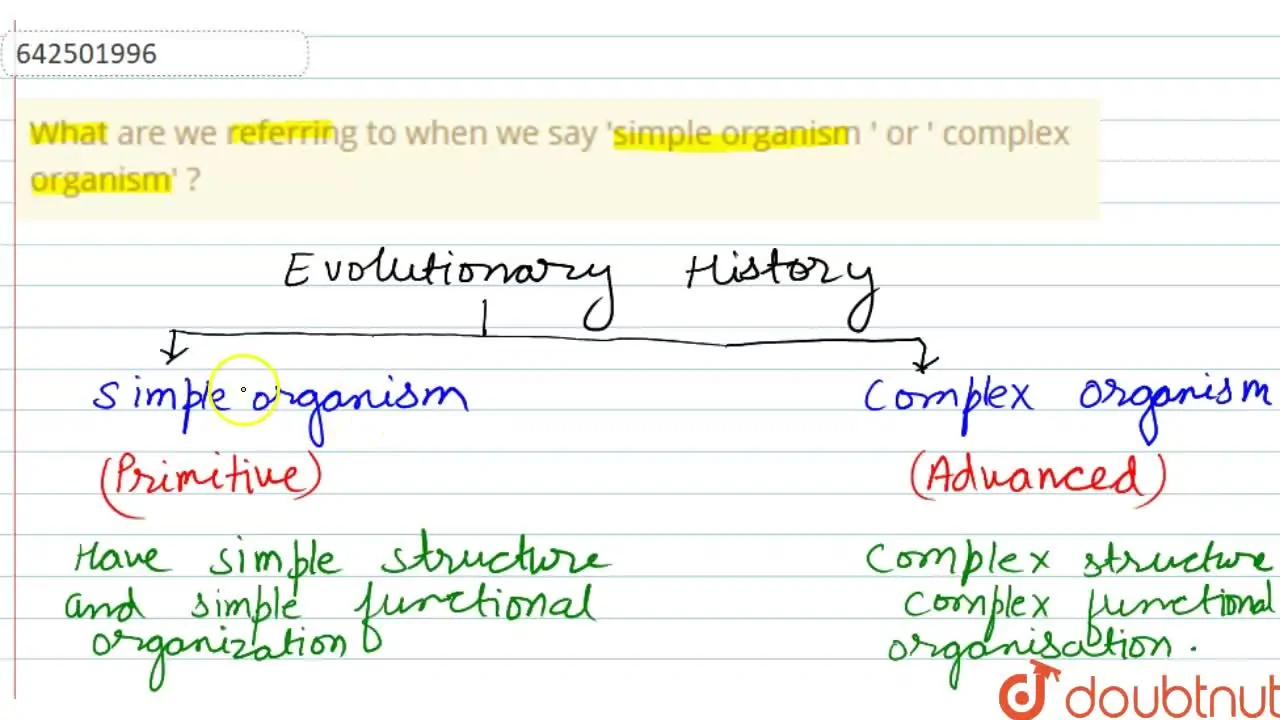What are we referring to when we say 'simple organism ' or ' complex organism' ?
These terms are used to classify organisms according to their evolutionary history.
Simple organisms refer to those organisms that have simple structural and functional organisation and are considered primitive, whereas Complex organisms refer to those organisms that have higher and complex levels of structural and functional organisation.
These are more advanced and said to have arisen from simple organisms.
Related Playlists
- BOOK - NCERT EXEMPLAR ENGLISHCHAPTER - EVOLUTIONEXERCISE - Short Answer Tpye Question.12videos
EVOLUTION
- BOOK - NCERT EXEMPLAR ENGLISHCHAPTER - EVOLUTIONEXERCISE - Long answer type Questions7videos
EVOLUTION
- BOOK - NCERT EXEMPLAR ENGLISHCHAPTER - EVOLUTIONEXERCISE - Long answer type Questions7videos
EVOLUTION
- BOOK - NCERT EXEMPLAR ENGLISHCHAPTER - ENVIRONMENTAL ISSUES EXERCISE - Long Answer Type Questions7videos
ENVIRONMENTAL ISSUES
- BOOK - NCERT EXEMPLAR ENGLISHCHAPTER - HUMAN HEALTH AND DISEASESEXERCISE - All Questions69videos
HUMAN HEALTH AND DISEASES
Similar Questions
What are we referring to when we say 'simple organisms' or 'complex organisms'?
View SolutionWhy do we classify organisms?
View SolutionWill advanced organisms be the same as complex organisms? Why?
View SolutionWhat does ''lac'' refer to in what we call the lac operon ?
View SolutionWhen do we say that work is done ?
View SolutionWe refer to the following as the food chain
View SolutionFollowing are the main steps in origin of life according to modern theory
A. Free atoms
B . Origins of simple organic compound
C. Origin of prebiotic molecules
D. Origin of simple inorganic compound
E . Origin of complex organic compound
F . Prokaryotes
What is correct sequence starting from oldest to latest ?View SolutionWhat is the difference between
organ and organism ?View SolutionWhat is the difference between
organ and organ system ?View SolutionWhat will happen if we kill all the organisms in one trophic level?
View Solution


